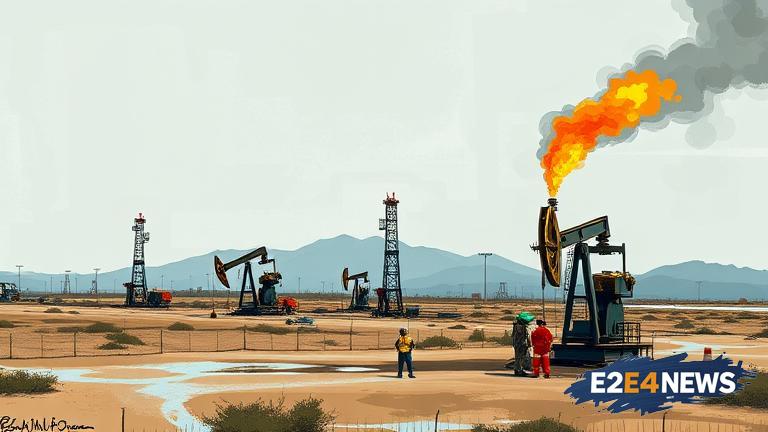In a significant development, the United States has thrown its weight behind Pakistan’s ambitious oil reserve plan. The plan, which aims to increase Pakistan’s oil reserves, has been welcomed by US President Donald Trump, who believes that it has the potential to benefit not just Pakistan, but also other countries in the region. Trump’s comments have sparked speculation that Pakistan may eventually sell oil to India, its neighbor and longtime rival. The US President’s statement has been seen as a major boost to Pakistan’s efforts to increase its oil reserves, which have been depleted in recent years due to a combination of factors, including a lack of investment and inefficient management. Pakistan’s oil reserve plan is part of a broader strategy to reduce the country’s reliance on imported fuel and to increase its energy security. The plan involves the construction of new oil storage facilities and the expansion of existing ones, as well as the development of new oil fields. The US has been a key partner in Pakistan’s efforts to increase its oil reserves, providing technical and financial assistance to support the development of the country’s energy sector. Trump’s comments have been welcomed by Pakistani officials, who see the US support as a major vote of confidence in their country’s ability to manage its oil reserves effectively. The potential for Pakistan to sell oil to India is seen as a major breakthrough in relations between the two countries, which have been strained for decades due to a range of issues, including territorial disputes and terrorism. However, it is still unclear whether Pakistan will actually sell oil to India, and if so, under what terms. The development of Pakistan’s oil reserve plan is also seen as a major opportunity for US companies, which are likely to play a key role in the construction of new oil storage facilities and the development of new oil fields. The US has a long history of involvement in Pakistan’s energy sector, and American companies have been major players in the development of the country’s oil and gas resources. The support for Pakistan’s oil reserve plan is also seen as part of a broader US strategy to increase its influence in the region and to counter the growing influence of China. The US has been seeking to strengthen its ties with Pakistan and other countries in the region, and the support for the oil reserve plan is seen as a key part of this effort. Despite the potential benefits of the plan, there are also concerns about the environmental impact of increased oil production and the potential for corruption and mismanagement. Pakistani officials have sought to address these concerns, emphasizing their commitment to transparency and accountability in the management of the country’s oil reserves. The development of Pakistan’s oil reserve plan is a complex and challenging task, requiring significant investment and technical expertise. However, with the support of the US and other international partners, Pakistani officials are confident that they can overcome these challenges and achieve their goals. The potential for Pakistan to sell oil to India is also seen as a major opportunity for regional cooperation and economic development. The two countries have a long history of trade and economic cooperation, and the sale of oil could be a major step forward in this regard. However, there are also concerns about the potential for tensions and conflicts over issues such as pricing and transportation. Despite these challenges, the support for Pakistan’s oil reserve plan is seen as a major positive development, with the potential to benefit not just Pakistan, but also the wider region. The plan is also seen as a major opportunity for US companies, which are likely to play a key role in the development of Pakistan’s energy sector. The US has a long history of involvement in Pakistan’s energy sector, and American companies have been major players in the development of the country’s oil and gas resources. The support for Pakistan’s oil reserve plan is also seen as part of a broader US strategy to increase its influence in the region and to counter the growing influence of China.
